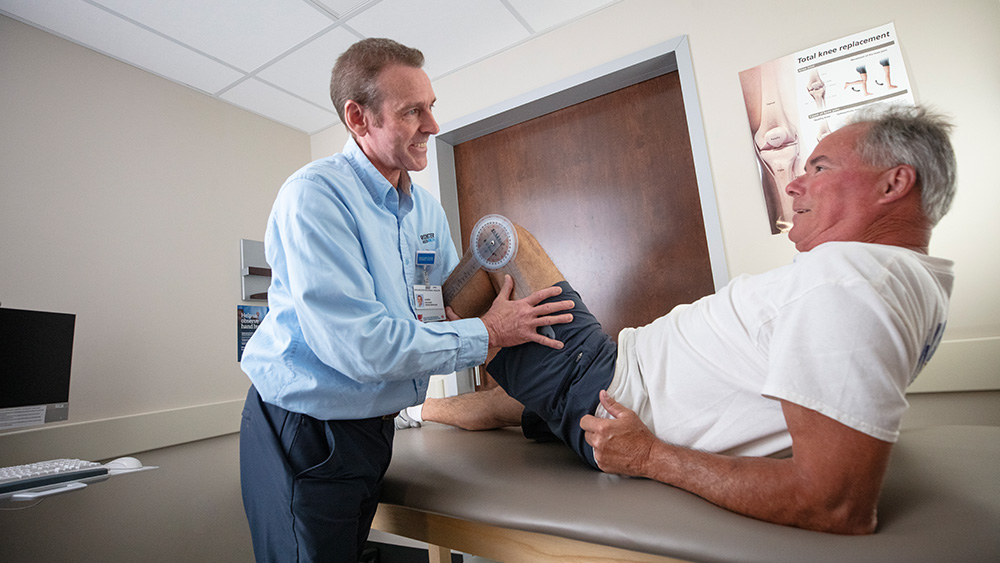Key Takeaways
- Strength training lowers a person’s risk of death and several major health conditions, including cancer and heart disease.
- People who do strength training have stronger bones and joints as they age.
- Reduced stress levels and maintaining good cognitive health can come from strength training, as well.
Our Orthopedic Urgent Care centers in Victor and Henrietta offer same-day treatment for unexpected injuries involving bones, joints, and muscles. With convenient walk-in hours available during the day, evenings, and Saturdays, we’re here when you need us most.
Getting stronger is a good thing. If you’re looking for reasons why you want to start strength training or add more strength training to your current routine, Cesar Nava, ATC, explains how it can benefit your health beyond becoming stronger.
1. Lower risk of death
Being stronger is linked to lowering your risk of death.
A systematic review of 16 different studies found people who did muscle-strengthening exercises reduced their mortality risk by 15 percent compared to people who did not do any muscle-strengthening exercises.
2. Lower risk for cancer, heart disease, and diabetes
A lower risk of mortality is great – and so is lowering the risk of developing serious health conditions.
People who do muscle-strengthening activities for 30-60 minutes a week lowered their risk for cancer and heart disease by 10-20 percent, according to data published in the British Journal of Sports Medicine. The risk of developing diabetes is lowered even more.
3. Healthy joints as you age
Being able to move well as you get older is a goal for many adults. Maintaining healthy joints for standing up, sitting down, bending over, and other movements is key to longevity. Studies show strength training can improve movement, even for adults who start later in life.
4. Improve & maintain bone density
People who consistently do strength training are able to improve both muscle and bone mass over time, which allows for a stronger body. More muscle mass slowly puts more stress on your bones, which strengthens them.
This can be especially helpful for postmenopausal women, who tend to face a higher risk of developing osteoporosis than men.
5. Lessens risk of falls
A combination of strength training, balance and gait exercises are shown to help reduce the risk of falling, especially in older adults. When strength training is mixed with functional exercises, people are able to complete everyday movements and tasks with a reduced chance of falling.
6. Maintaining healthy weight
The first steps toward maintaining a healthy weight are lifestyle changes, including a diet that favors plants over meat and regular physical activity.
Multiple systematic reviews and studies show strength training help with keeping muscle mass while losing extra fat from the body.
7. Prevent cognitive decline
One of the surprising effects of strength training is how it can preserve critical thinking and brain function. Scientists who reviewed multiple studies about exercise and cognitive function in older adults found it not only helps older adults stay mentally sharp longer, it can also help patients who have dementia.
8. Relieve and reduce stress
Because exercise can release chemicals and hormones throughout the body, it stands to reason that strength training can be a good form of stress relief and reduction. Studies of people with anxiety disorders suggest those who did strength training had less psychological distress and fewer symptoms of anxiety.









